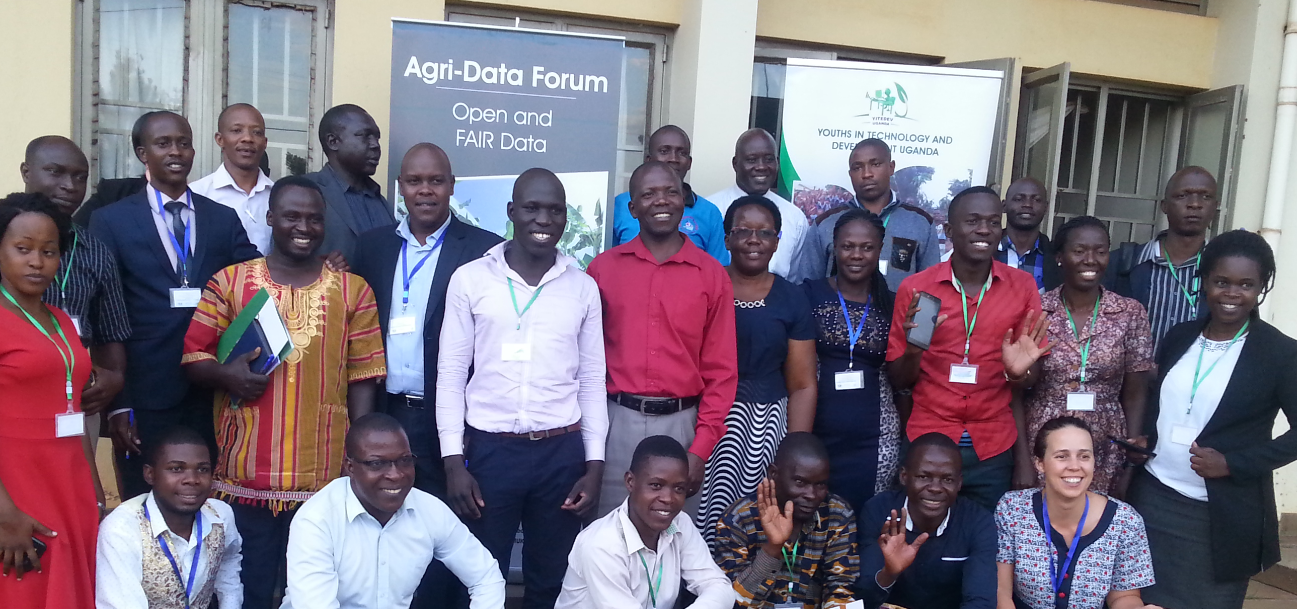On Saturday 7th March 2020, the tenth Open Data Day took place with people around the world organising over 300 events to celebrate, promote and spread the use of open data. Thanks to generous support from key funders, the Open Knowledge Foundation was able to support the running of more than 60 of these events via our mini-grants scheme.
This blogpost is a report from Youths in Technology and Development Uganda who received funding from Datopian to share innovative data tools and a FAIR open data road map to measure progress against the SDGs in the country.
Uganda has a vision of itself as a country without poverty that invests in human security, where everyone shares the benefits of opportunity and growth. However this agenda must be guided by a sustainable open data ecosystem and a FAIR open data road map to measure the progress against the Sustainable Development Goals (SDGs).
During Open Data Day on 7th March 2020, Youths in Technology and Development Uganda (YITEDEV) organised an event sponsored by the Open Knowledge Foundation and hosted at Mukono District under the theme “Data and Equal Development with an ultimate goal of sharing innovative data tools and FAIR open data road map to measure progress against the SDGs in Uganda.”
This event attracted 18 participants of which some were representatives from Mukono district local government, Global Open Data for Agriculture (GODAN) champions representing Africa, civil societies working in the health and agricultural sectors, policy makers, researchers, innovators and youth activists.
The following concepts and recommendations were unpacked in three presentations aimed at helping to realise a sustainable roadmap to measure the progress against SDGs in Uganda:
Open data, tools, FAIR Principles and FAIR Data road map strategy (by Paul Kasoma)
The government and district planning committees need to realise the value of opening key data to help in making informed decisions especially in agriculture and in the health sector to monitor government resources. The data should be Findable, Accessible, Interoperable and Reusable (FAIR) and this will create transparency and support monitoring, evaluation and learning practices. More data portals should be set up, supporting and improving capacity of national governments to release key data for agriculture and health is required.
Open data government portals for Uganda in the main sectors (by Namboowa Annet)
Open data government portals promote transparency, accountability and value creation by making government data available to all. However, making them open is not enough, they should be made accessible, reusable, findable and interoperable, allowing them to communicate with different data systems.
Data tools and code of conduct for data with reference to the Ugandan data privacy bill (by Stephen Kalyesubula)
As data flows from different sources, there is need to observe the code of conduct in data sharing and use to regulate the piecemeal process that happen in the collection, use and sharing of data. The code of conduct is data governance framework which mainly contains data classification, data rights, security standards, data access, data severity, terms and conditions. The Uganda data privacy bill speaks more about personal data and privacy but there is more it should capture in terms of data classification and levels of rights as data goes through a series of processes. Data tools and SDG trackers were shared with planning authorities to help them monitor and evaluate the district projects.
In conclusion, for Uganda to see sustainable development it needs to redesign, setup and implement a FAIR open data roadmap to promote equitable sharing of data so as to measure the country’s progress against the SDGs together with the clear and precise data code of conduct to regulate the piecemeal processes of collecting and sharing of data.
We send our sincere appreciation to the Open Knowledge Foundation for the financial support towards our event.









